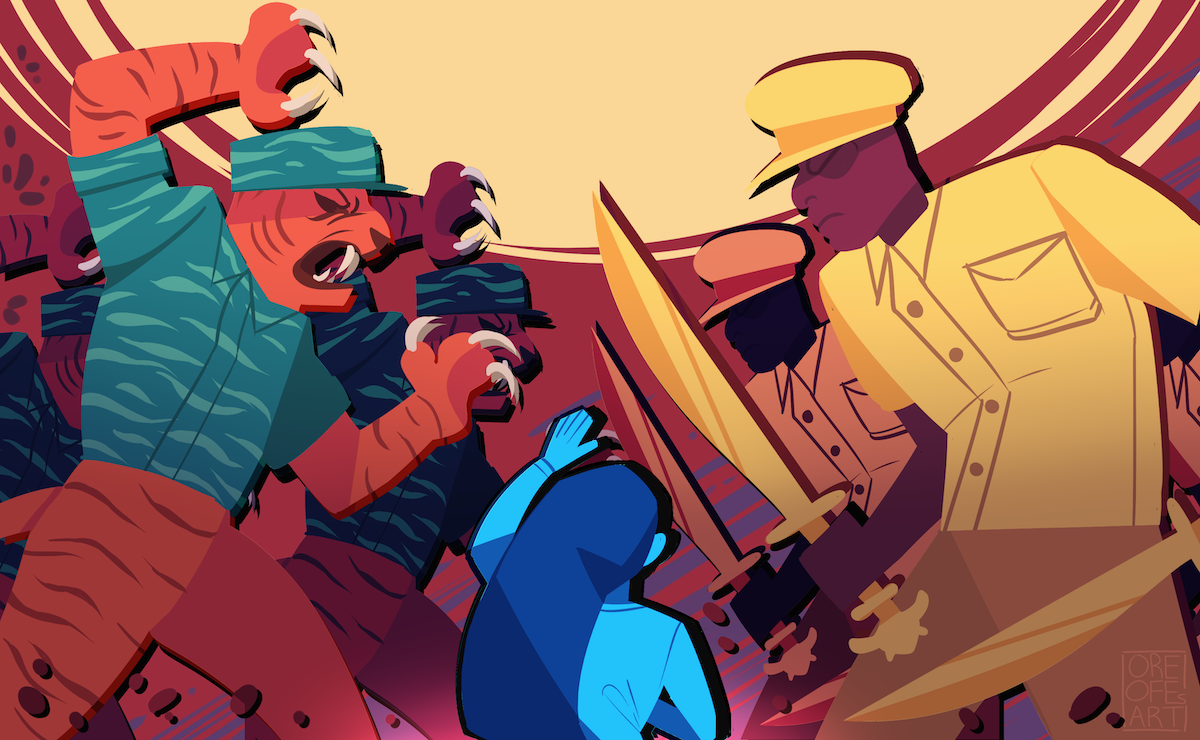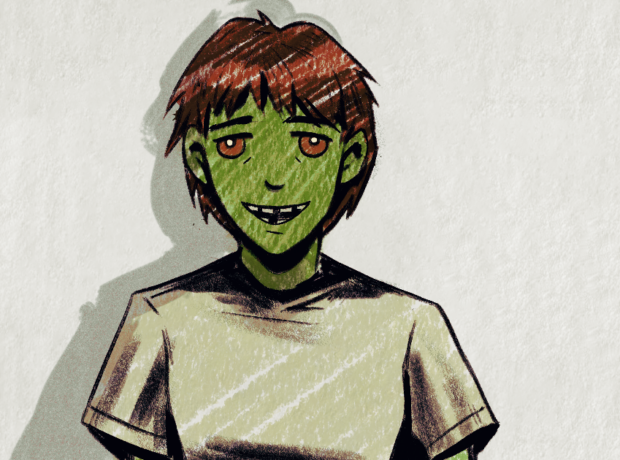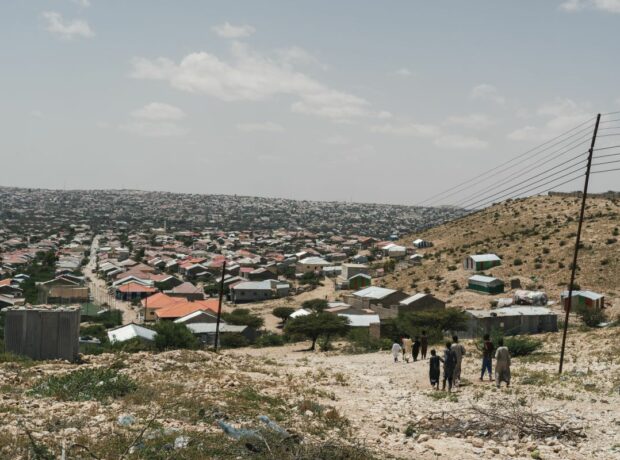During a visit to her family’s homeland, Sri Lanka, Shobi Keerthy uncovers a personal and national history of conflict that had previously been kept hidden. As she joins the dots of her childhood memories in this coming-of-age tale, a story far bigger than her own is revealed.
Greeted by rains
If the topic of my mother nation arises in conversation, it will undoubtedly be because one of my British friends is planning a backpacking trip there: “I’m thinking of trekking across India too! Could you give me advice on where to go?”
What I don’t tell them is that my memories of this place are a jumbled assortment of fractured screenshots: a six-hour drive in a dusty van, a wild elephant running past our car once, my grandma sitting on the wooden swing on her veranda, ants (too many ants – they bite a lot) and a refreshing glass of faluda, the saving grace after spending all day under the oppressive sun.
This account, I feel, would put them off. I shouldn’t do that. So instead, I say: “Avoid the monsoon season. It gets pretty rainy.”
On my last trip to Sri Lanka, aged 10, I remember hearing the strong monsoon winds sweeping past the plane, a simultaneous howl and whisper, shaking its course and causing it to stagger onto the landing strip. I vomited as the other passengers exited. Monsoon rains greeted me outside. I recalled how excited I was to get on this flight at Manchester Airport. Thirteen hours later, I wished I had never boarded the plane.
As I drove to my grandmother’s, I realised rainfall in Sri Lanka was not half-hearted and moody, like English rain, but roaring and passionate. It unsettled the earth, kicking up dust and the red soil, blessing the rice fields and denting the concrete roads into humble submission. The storm carried on for three days until the rain itself appeared fatigued, slipping away like an angry toddler, drained after his tantrums, finally taking a nap.
Whispered quarrels
My first few days in Sri Lanka were spent resting, waking up only to be fed by my grandmother’s servant girl. I would learn later that her name was Maya.
I remember her face clearly, more so than those of my relatives, who came in droves to see my mother and her “beautiful British-born children”. They brought me chocolates, pinched my cheeks too hard and complimented my “fair skin”.
Read More: 7 stories about identity, culture and intersectionality
Maya did none of that. She was a quiet sort, with kind eyes and a small smile. I was impressed at how she was able to carry the largest bags of rice to the kitchen, despite her gangly 22-year-old body and her sari dragging along the ground, occasionally making her stumble.
When I asked her to be my friend, she laughed, but told me that I reminded her of her younger sister.
“Where is she?” I asked.
She’s dead. Joined the Tamil Tigers when she was 16.”
“How did she die?”
“Like I said, she – ”
“Yes, but how?”
Someone walking in had overheard our conversation and scolded us both – me for bothering Maya and Maya for forgetting her place.
I made little conversation with her after this. From that day onwards, my mother fed me herself. But I still recall that this was the first time I heard the words, “Tamil Tiger”.
Somehow, I am reminded of the time when my mother first played her ABBA: Gold CD to me. Only five years old, I told her that Dancing Queen “made my tummy feel happy”. But the strange thing was that after that event I proceeded to hear it everywhere: when grocery shopping, in clothing stores and during elevator rides. The butterflies never disappeared.
And although it would lead me down a bitter, painful path of discovery, neither did the curiosity that Maya’s words sparked in me.
A few days later, perched on the arm of my grandfather’s chair, I heard Dancing Queen again. The air was crisp and cool. Apappa always held his ‘Lions Club’ meetings on the veranda at night, surrounded by his friends and three or four bottles of brandy. My grandmother served them food.
Amongst a group of loud, inebriated octogenarians, I felt meek and out-of-place, shrinking into my grandad’s arms, occasionally asking him to translate words I didn’t understand.
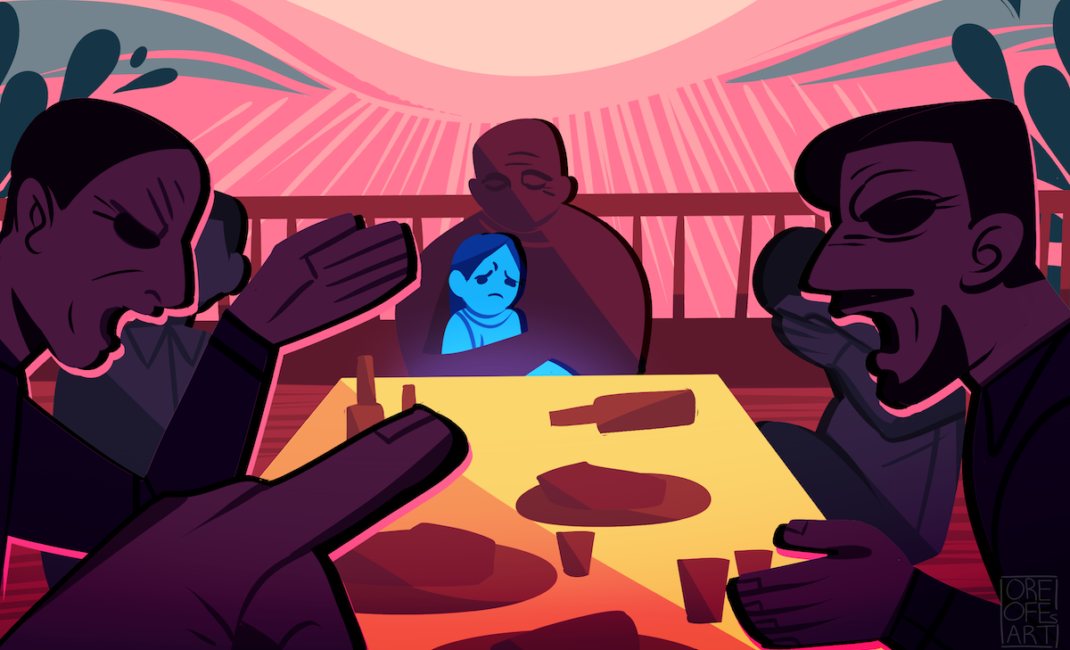
Most of his friends were businessmen and merchants who had travelled to places I had never heard of. They discussed Marxist philosophy and South Asian literature for hours, as if they were experts. No-one spoke of the homeland.
As time went on, however, the brandy took its toll on their stoicism and raw, unrefined sentiments began to surface. I had almost drifted to sleep on apappa’s lap when, suddenly, I heard one of them crying softly.
Maybe if the Tigers hadn’t formed, none of this would have happened.”
“Rahul, your son is in a better place now. Besides, the Tigers are fighting for something we all want: liberation from this oppression. You know how hard it was for your wife when she had to leave her job because they didn’t want any Tamil hospital volunteers.”
“How could you say that! Did I ask them to fight for me? For my family? My son – my only son! – lost to a fear-mongering terrorist -”
“They are freedom fighters, not -”
I sat up, wide awake now, startling my grandad. The men froze, eyes wide, their discussions dissipating into the quiet sounds of chirping cicadas and the generator fan humming in the night air.
I am sure they had forgotten that a small child was present, that their coarse words had fallen on my innocent ears. They looked to my grandad with apologetic eyes and then, as if nothing had happened, forced smiles on their faces and asked me about my ballet lessons in England.
There on the veranda, enveloped in the comforting warmth of apappa’s arms, I could see past my grandmother’s carefully cultivated ferns to the large metal gate that kept guard over her home. One day, when my mother finally told me stories of her past, I would learn that many years ago this gate had kept the Tigers from storming into the house.
Read more: When rape sparks protest: Turning points in India’s history
They had stood outside, rifles in hand, demanding to see my grandfather, who they claimed “betrayed us all by working for the government”. I would try to grasp my mother’s terror as she described being herded, along with her sisters, into the kitchen’s storeroom, where she would be protected from the men’s leering eyes. She had been just one year older than I was when I sat on that veranda.
I think back to that moment – in fact, to the countless moments when I chose not to question, and not to speak up or demand answers. Was it my drowsiness, or simply my naivety, that fed my disregard at those times? Does the innocence of childhood excuse one’s ignorance, one’s obliviousness? And yet some truths are inescapable. Hushed conversations, whispered quarrels behind closed doors and silenced servant girls become futile in the glaring face of conflict.
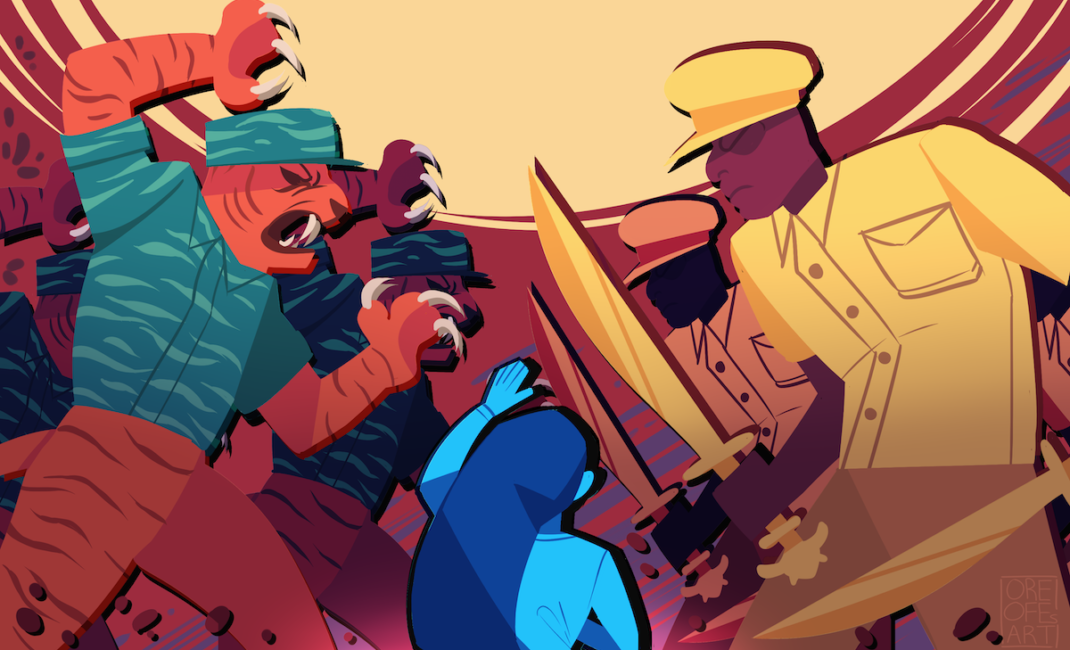
The day trip
We were driving to an elephant orphanage in Pinnawale, that region of dense tropics at the heart of the homeland. My fingers drummed on the windowpane in time to the Tamil songs my mother and auntie sang, their voices reverberating around the jeep, filling it with unbridled joy. My father theatrically proclaimed that they were making him deaf and I giggled helplessly.
At once, the radio was switched off. My mother began to complain, but faltered, her tone hardening. She turned to face me.
“Darling, some men are going to check our car. I want you to be silent for the next five minutes, understood?”
“What’s wrong with our car?” I asked. She looked at me imploringly.
“Silence, please. That means no talking to me or appa.” “But momma – ”
A short, sharp shake of her head. I had run out of time for questions, for gentle explanations, for hand-held discussions over dinner during which the truth might be revealed to me by candlelight, with time for illuminations of previous events and justifications of previous decisions. Instead I would learn this truth in a dusty, sweltering jeep, outside a military checkpoint.
The soldiers were unsmiling. Three were standing outside, one motioning for our vehicle to stop, and two simply standing with their arms crossed, unflinching.
They wore full military uniform, and if I hadn’t been so taken with curiosity, I would have laughed at their berets. I had only seen my mother wear them in England at wintertime. Their stylish attires, however, stood in sharp contrast to the shabby checkpoint.
With clay walls and a roof of thin sheets of corrugated tin, it looked oddly like the roadside tea stand we had visited an hour ago. Noticing the stagnant pools of rainwater on the dented roof, I suspected the monsoon winds had brought about its battered state.
The vehicle pulled to a stop and the soldiers sprang into action. One motioned for my father to step out of his vehicle. The other two walked around the vehicle, pressing their large, sweaty faces against the glass, beads of perspiration leaving wet imprints on the jeep’s windows. I felt nauseous.
One of the men even smiled and waved at me, a friendly gesture I would usually have reciprocated. Instead, I froze as if I had been doused with a bucket of ice. I looked hopelessly towards my mother. Her eyes were fixed forwards as she sat motionless.
Silence, save for the quiet murmurs of the conversation my father was having with two of the men. I tried to crane my neck to gather more from the exchange when, suddenly, the vehicle’s doors slid open and a soldier stuck his head inside, his eyes darting around to our bags and the spaces underneath our seats, his brow furrowing as if he were certain we were concealing something important. His rifle, strapped to his back, prodded the roof of the jeep with short, repetitive thuds.
Out of nowhere, my father’s voice.
“What do you think you’re doing? I’ve produced my papers. I’m a doctor, a consultant trained in Colombo. Step away from my children.”
The soldier’s eyes darted to my father. Was it surprise or fear that I registered in them?
“A Colombo doctor? But… you’re Tamil.”
Appa raised his eyebrows. “Unlike some,” he said, looking pointedly at the military checkpoint where the other men sat, “we are a profession that does not discriminate.”
I wanted to shake my father’s arm and to plead for him to be nicer, softer and less provoking to this man with a gun. My eyes welled up with tears. Was this why we had never visited Sri Lanka? Why did my mother seem so frostily calm, my father so defiant, when we were staring danger in the eye? Had they done this before? Was this familiar to them?
A final, devastating question echoed in my mind. How could they have kept this, kept everything, from me?
“Tell me everything”
The sound of the jeep’s gruff engine lurching to a start brought my surroundings back into focus. I noticed the guards waving to us, one motioning for us to continue, smiling as if they were pleased that we had passed their tests, that we were one of them, one of the nice ones.
My father began to pull out of the checkpoint bay, very slowly. The radio started playing. He quickly switched it off. None of us spoke, not yet.
When we were waiting to join the main road, I heard a loud thud behind us. Someone screamed – a woman. I twisted my head and sat up on my knees.
A man was doubled over on the ground, his face contorting in pain. His body was being held down by a soldier’s boot, the soldier who had just inspected our car. A woman fell to her knees beside them, clutching the soldier’s legs and begging for mercy. I couldn’t make out exactly what she was saying. Her voice was hoarse from crying. Her words fell over each other.
Despite knowing it was too late to protect me now, my mother tugged at my arm, pulling me around to face her. Unshed tears shone in her eyes. She shook her head. I shouldn’t witness any more pain.
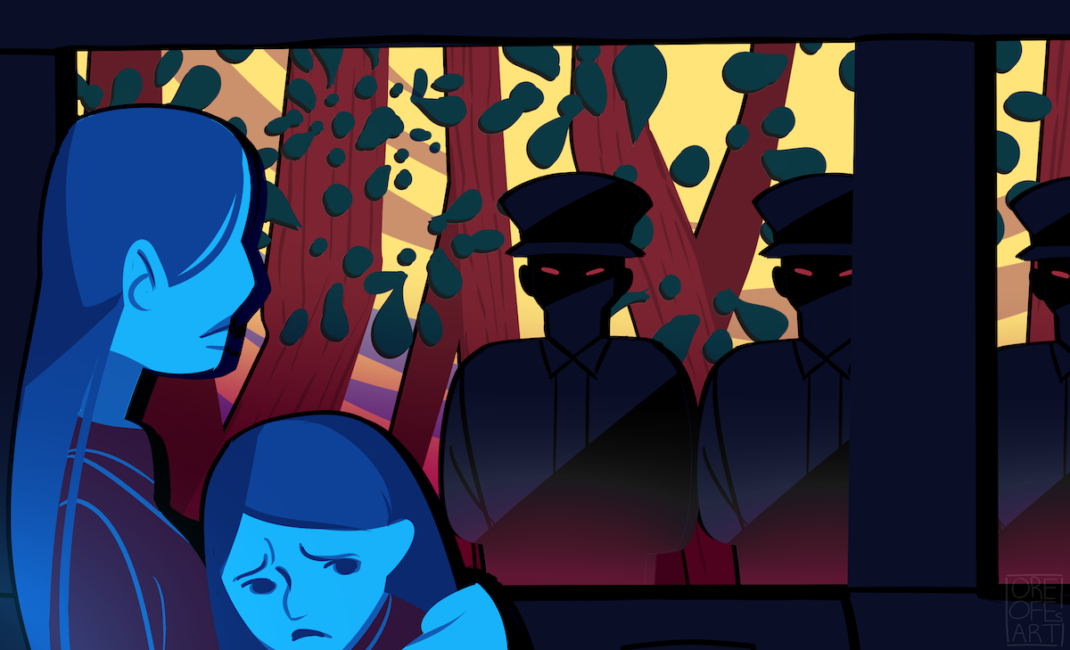
Looking back, I’m glad she did this; a small part of me, the part that cringed in childlike fear, didn’t want to see what happened next. I wondered if the couple behind us had children in the backseats of their car, children who didn’t have the luxury of turning their backs, of continuing on their travels to an elephant sanctuary, of catching a flight back to England in three days.
I felt so small and useless.
My mother shook appa’s arm. “You should go over there and try calming them down. We have to do something”.
“I know,” my father sighed. “We can’t just leave.”
He looked at my mother. “I’ll be back.”
As he shifted out of his seat, she clutched his arm, as if she regretted what she had just asked him to do. He looked at her then, really looked at her. They stayed like that for a few seconds, communicating silently. Finally, giving her a shaky smile, he opened the jeep door.
Read more: The Maid of Honour Violence
As he walked back to the checkpoint, my auntie clutched the holy thread she wore around her wrist and began murmuring prayers under her breath. My mother put her head in her hands; I suspected she was doing the same. I did nothing. I couldn’t bear to turn back around.
We waited for what felt like hours. Nobody had screamed. Not yet.
Moments later, footsteps coming towards our jeep. I started to shake.
And then I exhaled. My father opened the vehicle’s door, a small, scared smile on his face.
“They let them go. One of the guards thought they were Tigers but I assured him they were good people,” his words rushed out quickly, as if he had just run from death.
“Turns out,” he continued, “I knew the man’s father. One of my professors at University”. My mother began crying and he reached out to hold her face in his hands.
“It’s alright. I’m alright.”
He turned to look at me and wiped away my tears. Had I been crying all this time?
“When we get back home,” he said, looking me straight in the eye this time, “you deserve to know.”
“Everything?” I asked.
He looked at my mother and, after she nodded her approval, turned back to hold my gaze.
“Everything.”
Read more:
- The Maid of Honour Violence: A poem about the conflicting emotions within forced marriage
- The Foreigner: A sensitive and spirited description of immigrant life
- Am I a person or a colour: A powerful political poem by a 14-year-old writer
All images by Oreofe Morakinyo.
